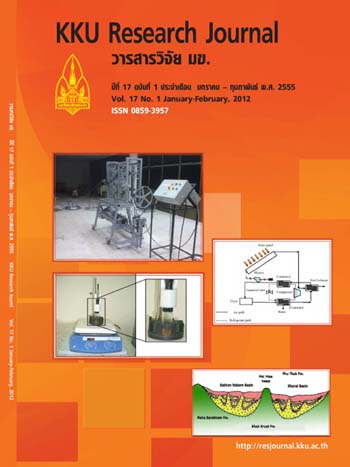Ruthenium: novel drug development and applications in cancer therapy
Main Article Content
Abstract
The first metal-based complexes, widely used in the clinic as antitumor agents, are cisplatin and its derivatives. However, their clinical applications are limited due to the adverse side effects and the tumor cells could
develop resistance to platinum drugs. Therefore, there is an intense effort to investigate new transition metal-based compounds in order to reduce the problems from using platinum complexes, and develop the alternative anticancer agents. One of the most promising metals is ruthenium which has some properties suitable for medicinal applications. According to their anticancer activities, the ruthenium complexes can be divided into several groups, such as ammine-chlorido, dimethylsulfoxide, heterocyclic, polypyridyl, arylazopyridine, and arene derivatives. Although the precise mode of action of ruthenium complexes remains illusive, several reports have shown that the mechanism of action of ruthenium complexes is different from that of the platinum complexes. Presently, the ruthenium-based drugs are continuously synthesized and developed as novel anticancer drugs for specific cancer cell types.


